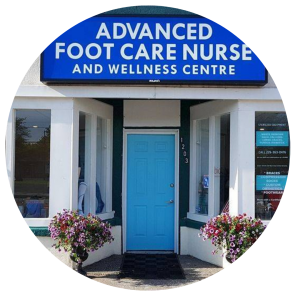Footcare Nursing: A Vital Aspect of Holistic Healthcare

- Janis Boudreau
Introduction:
Proper foot care is often overlooked, but it plays a crucial role in overall health and well-being. Footcare nursing has emerged as a specialized branch of healthcare dedicated to addressing foot-related issues, promoting preventative care, and restoring mobility. This article aims to shed light on the significance of footcare nursing and the vital role it plays in maintaining optimal health.Understanding Footcare Nursing:
Footcare nursing is a specialized field that focuses on the assessment, treatment, and management of foot and lower limb conditions. These healthcare professionals, known as footcare nurses or podiatry nurses work alongside podiatrists and other healthcare providers to provide comprehensive foot care services to individuals across all age groups.Key Responsibilities:
Footcare nurses perform a wide range of responsibilities aimed at promoting foot health and preventing or managing foot-related problems. Their role may include:- Assessment and Diagnosis: Footcare nurses conduct comprehensive assessments of patients’ foot health, identifying any abnormalities, infections, or injuries. They utilize their expertise to diagnose various foot conditions, such as diabetic foot ulcers, ingrown toenails, fungal infections, and more.
- Treatment and Management: Footcare nurses administer appropriate treatments for foot ailments, including wound care, debridement of calluses, toenail clipping and filing, and application of orthotic devices. They also assist patients in managing chronic foot conditions by providing education, advice on footwear, and self-care techniques.
- Prevention: One of the essential aspects of footcare nursing is the promotion of preventative foot care practices. Footcare nurses raise awareness about proper foot hygiene, diabetic foot care, and conditions that may require specialist intervention. They also offer guidance on optimizing foot health through regular exercise, proper footwear, foot inspections, and other preventive measures.
- Collaboration: Footcare nurses work closely with other healthcare professionals, such as podiatrists, physicians, physical therapists, and diabetes educators. This collaboration ensures a multidisciplinary approach to patient care, allowing for better outcomes and holistic management of foot-related conditions.
- Diabetic Footcare: Diabetes can cause nerve damage and poor circulation in the feet, making them prone to ulcers and infections. Footcare nurses play a critical role in assessing and managing the foot health of diabetic patients, preventing complications, and promoting early intervention.
- Age-related Foot Conditions: Foot problems become more prevalent with advancing age. Footcare nursing provides the expertise needed to address age-related foot issues like arthritis, bunions, hammertoes, and reduced range of motion.
- Foot Health Education: Footcare nurses empower individuals with knowledge about preventive foot care practices, helping them make informed decisions regarding footwear, hygiene, and early intervention for common foot conditions.
- Holistic Healthcare Approach: By focusing on foot health, footcare nursing contributes to holistic healthcare. Feet serve as an essential foundation for the body, and maintaining their health is crucial for overall well-being and mobility.

Janis Boudreau
Janis Boudreau is the founder of Advanced Foot Care Nurse, the leading foot care specialised business in Ontario with over 6 locations and growing. Professional, High-Quality Foot Care done with compassion!
We have 12 licensed Nurses and 1 PSW/Aesthetician in good standing with the College of Nurses of Ontario.
We are educated in Advanced Foot Care, and skilled Diabetic education. We upgrade our skills continually to meet best practice standards.
We proudly have combined 105 years of nursing experience and over 15,000 high quality foot care visits in office and home foot care.
ADVANCED FOOT CARE NURSE cares about you and offers a holistic approach to foot care!
With the use of a state-of-the art, suction integrated podiatry drill and various podiatry burs, We have found a unique way to deliver the safest, effective and painless experience for patients with virtually no vibration… We only use the best!


